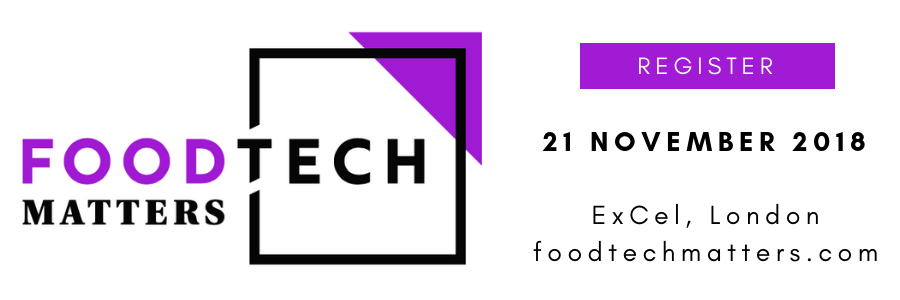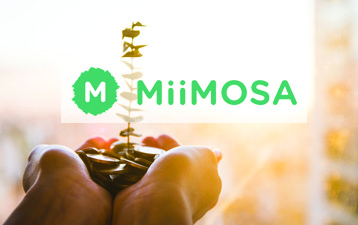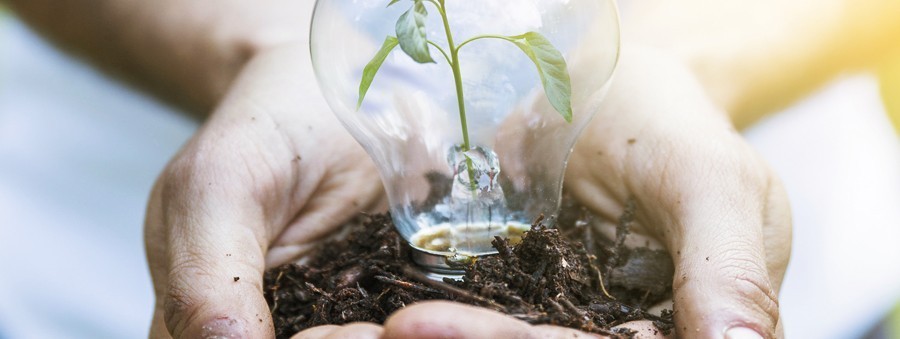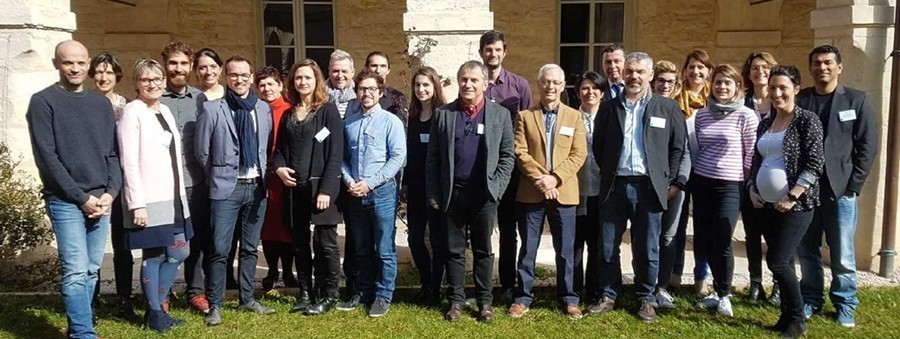
Alors que la population mondiale explose et que les ressources s’amenuisent, les professionnels de l’alimentaire à travers le monde sont à la recherche de technologies pouvant modifier notre façon de produire, de distribuer, et de consommer. Ce constat joue un rôle clé dans l’internationalisation de votre start-up (et dans sa rapidité). ToasterLAB s’est associé à Food Tech Matters, l’événement international de la FoodTech qui se tiendra à Londres le 21 novembre prochain, pour proposer aux start-ups du secteur une vitrine de valorisation devant des investisseurs - car il n’est jamais trop tôt pour penser international !
Depuis quelques années, les professionnels de l’agroalimentaire à travers le monde cherchent à répondre différemment aux exigences des consommateurs, à la recherche d’une alimentation plus naturelle, plus durable, et plus saine. Partout dans le monde, des start-ups imposent, avec l’agilité qui les caractérisent, un rythme soutenu en innovation de rupture dans l’agroalimentaire. Des imprimantes 3D alimentaires à la viande de laboratoire, en passant par les fermes verticales, leurs technologies innovantes pourraient résoudre les défis attendus par les générations futures.
Au sein de l’écosystème de ToasterLAB, nous remarquons un intérêt grandissant des investisseurs et des grands groupes de l’agroalimentaire, soucieux de participer à la course effrénée (et internationale) de la FoodTech, envers ces innovations. Attirées vers ces partenaires pour une accélération de leur développement à l’international, les start-ups ont beaucoup à gagner de cet intérêt.
LA TECHNOLOGIE AU MICROSCOPE…
Le premier intérêt semble être sur les technologies permettant aux consommateurs d’accéder à une alimentation bonne au goût et à la santé, et à un bon prix. En parallèle, on constate aussi un fort intérêt pour retrouver la confiance des consommateurs, par la transparence, l’efficacité de l’exploitation des ressources en production et supply chain. Cet intérêt façonne un environnement fertile pour les start-ups qui ajouter la « tech » à la « food », afin d’accéder à l’international avec l’aide de partenaires et d’investisseurs stratégiques.
« Depuis 2013, le nombre d’investisseurs qui prennent part au secteur agroalimentaire a plus que triplé. Les grandes entreprises multiplient leurs initiatives et les fonds d’amorçage destinés aux start-ups », m’explique Briony Mansell-Lewis, directeur de Food Tech Matters.
En plus de cela, l’intérêt se porte de plus en plus sur des start-ups « early stages » ou semi-matures. « Alors que des start-ups emblématiques de la FoodTech comme Beyond Meat génèrent de la visibilité et de l’intérêt global pour ce secteur, les fortes valorisations poussent les groupes agroalimentaires et les fonds d’investissement à se tourner vers de plus petits investissements dans de jeunes start-ups », détaille Briony Mansell-Lewis.
QUAND LE TEMPS PRESSE
il y a beaucoup à gagner dans un partenariat avec un grand groupe de l’agroalimentaire ou un fonds d’investissement : accéder à des marchés émergents en forte croissance, à des plateformes de distribution, à des forces de vente… Plus l’accès au marché est facile, plus le time-to-market est crucial… et plus il devient indispensable de s’intéresser à ces ressources offertes par ces gros partenaires, avant de se laisser rattraper par des concurrents !
Bien entendu, les premières étapes consistent à capter des opportunités de visibilité. « Nous avons créé Food Tech Matters dans l’objectif de faciliter les connexions entre ces start-ups innovantes du secteur alimentaire, les grands groupes et les investisseurs », explique Briony Mansell-Lewis.
« Etant donné l’intérêt actuel pour la « tech », nous offrons une vitrine aux innovations de ces domaines spécifiques :
- La modification génétique, l’impression 3D, la nutrition personnalisée ;
- L’intelligence artificielle et ses applications dans la production, la transparence, la réduction du gaspillage ;
- Les protéines durables et alternatives à la viande ;
- Les nutraceutiques innovants pour développer de nouveaux produits et offrant des solutions au gaspillage alimentaire. »
« Ces technologies sont une promesse pour un futur durable et une meilleure nutrition pour tous L’objectif est de leur faciliter le passage à l’échelle », conclut-elle.
POUR ALLER PLUS LOIN
Si vous voulez miser sur le développement international pour la croissance de votre start-up et que vous recherchez des opportunités de rencontres avec vos futurs partenaires, rejoignez ToasterLAB et prenez part à Food Tech Matters, le 21 novembre 2018 à Londres.
Contactez Claire Van Overstraeten pour plus de détails et pour bénéficier de tarifs réduits (options de visibilité pour les start-ups à partir de £250 (environ 280€) : claire.vanoverstraeten@vitagora.com, 03 80 78 97 93.
Attention : les tarifs préférentiels s’achèvent le 5 octobre 2018.

Food Tech Matters est un événement international à Londres, qui inclut des pitchs d’entreprises et d’investisseurs, des ateliers autour des nouvelles technologie, des rendez-vous d’affaires entre investisseurs/grands groupes et start-ups, et le Food Tech Lab, une opportunité de visibilité unique pour les start-ups de la FoodTech du monde entier.
Entrepreneurs, grandes entreprises, start-ups… Offrez-vous cette opportunité unique de rencontrer vos futurs partenaires (industriels, mentors, investisseurs, experts en nutrition, institutionnels, etc.).
Plusieurs start-ups ont déjà confirmé leur présence : Natural Machines (Espagne), à l’origine de la première imprimante 3D alimentaire, Higher Steaks (UK) qui travaille sur une « viande » de laboratoire, Winnow (réduction du gaspillage alimentaire), Magellan Life Sciences (Inde – protéines alternatives), Mimica Lab, etc.
Du côté des grandes entreprises et des investisseurs, sont annoncés : Nestec, Five Seasons Venture, Distill Ventures, Sweden FoodTech, , Forward Fooding, ANJA GmbH, Nestle, Diageo Sluys International and Mathys & Squire, etc.
Grâce à Co:cubed, participez à des rendez-vous d’affaires de 30 minutes entre start-ups et grandes entreprises, sur des thèmes « FoodTech » tels que la nutrition personnalisée, le microbiote, etc.
Contact :
Claire van Overstraeten, ToasterLAB : claire.vanoverstraeten@vitagora.com, +33 3 80 78 97 93
Tarifs avantageux pour start-ups à partir de £250 (environ 280€)
https://www.foodtechmatters.com











